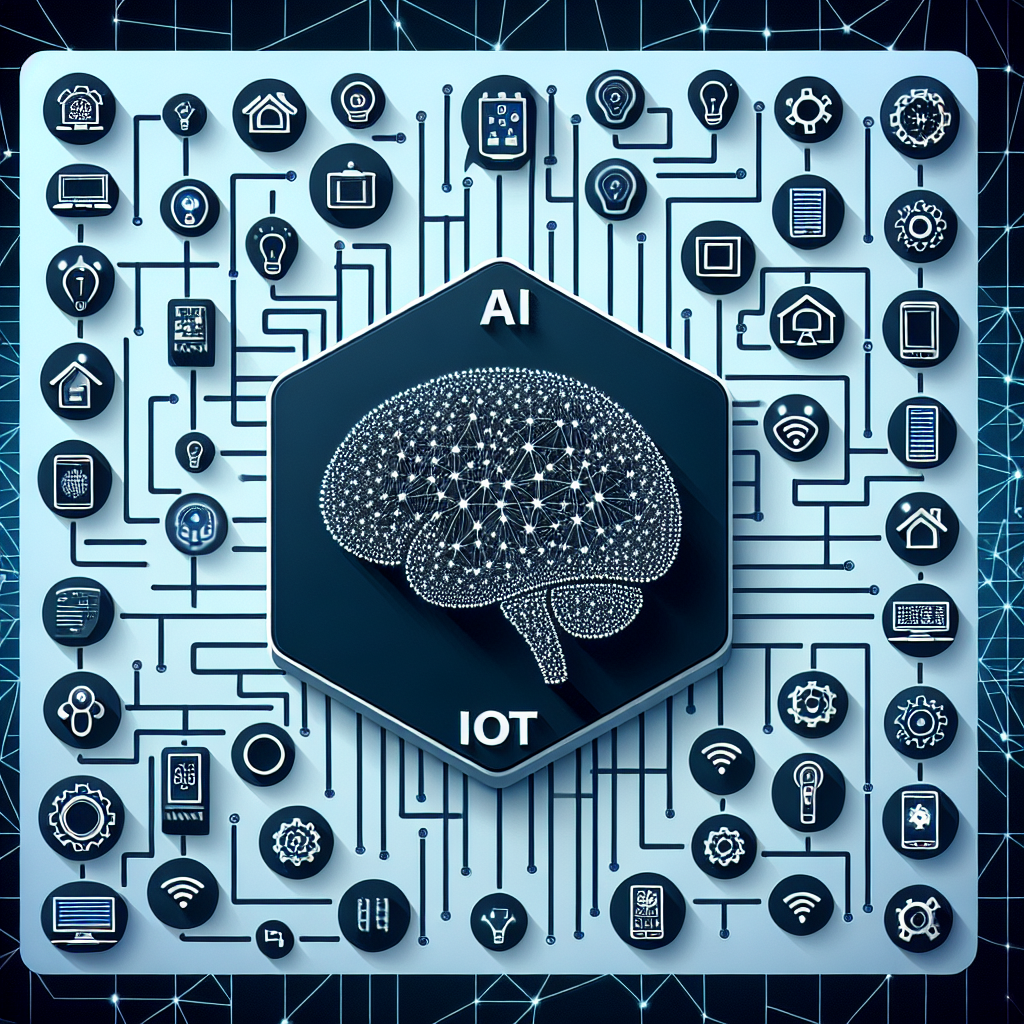The Intersection of AI Platforms and IoT
The Internet of Things (IoT) and Artificial Intelligence (AI) are two rapidly growing technologies that are reshaping the way we interact with the world around us. IoT refers to the network of physical devices, vehicles, appliances, and other objects embedded with sensors, software, and connectivity that enable them to collect and exchange data. AI, on the other hand, refers to the simulation of human intelligence processes by machines, including learning, reasoning, and self-correction.
The intersection of AI platforms and IoT has the potential to revolutionize various industries by enabling devices to become smarter and more efficient. By leveraging AI algorithms and machine learning techniques, IoT devices can analyze and interpret the vast amounts of data they collect, making them more responsive and adaptive to their environments.
AI platforms can help IoT devices to:
1. Predictive Maintenance: By analyzing data collected from IoT sensors, AI algorithms can predict when a device is likely to fail, enabling proactive maintenance to prevent costly downtime.
2. Energy Management: AI can optimize energy consumption by analyzing data from IoT devices and adjusting settings based on usage patterns and external factors such as weather conditions.
3. Anomaly Detection: AI can identify unusual patterns or behaviors in IoT data that may indicate a security breach or malfunction, enabling quick response and mitigation.
4. Personalization: AI can analyze user behavior and preferences collected by IoT devices to deliver personalized experiences and recommendations.
5. Autonomous Operation: AI-powered IoT devices can make real-time decisions without human intervention, enabling autonomous operation in various applications such as self-driving cars and smart homes.
FAQs
Q: What are some examples of AI platforms that are commonly used in conjunction with IoT devices?
A: Some popular AI platforms that are used in conjunction with IoT devices include Google Cloud IoT, Microsoft Azure IoT, IBM Watson IoT, and Amazon AWS IoT.
Q: How does AI improve the efficiency of IoT devices?
A: AI algorithms can analyze data collected from IoT devices to identify patterns, trends, and anomalies that may not be apparent to human operators. This enables IoT devices to make more informed decisions and optimize their performance in real-time.
Q: How does the combination of AI and IoT impact data privacy and security?
A: The combination of AI and IoT presents unique challenges for data privacy and security, as the vast amounts of data collected by IoT devices can be vulnerable to cyberattacks. However, AI can also be used to enhance data security by identifying and mitigating potential threats in real-time.
Q: How can businesses leverage the intersection of AI platforms and IoT to gain a competitive advantage?
A: By leveraging AI platforms to analyze data collected from IoT devices, businesses can gain valuable insights into customer behavior, operational efficiency, and market trends. This enables them to make data-driven decisions and innovate more quickly than their competitors.
In conclusion, the intersection of AI platforms and IoT has the potential to transform industries by enabling devices to become more intelligent and adaptive. By leveraging AI algorithms and machine learning techniques, IoT devices can analyze and interpret the vast amounts of data they collect, making them more efficient, secure, and personalized. As the adoption of IoT devices continues to grow, businesses that embrace the power of AI will be better positioned to gain a competitive advantage in the marketplace.

